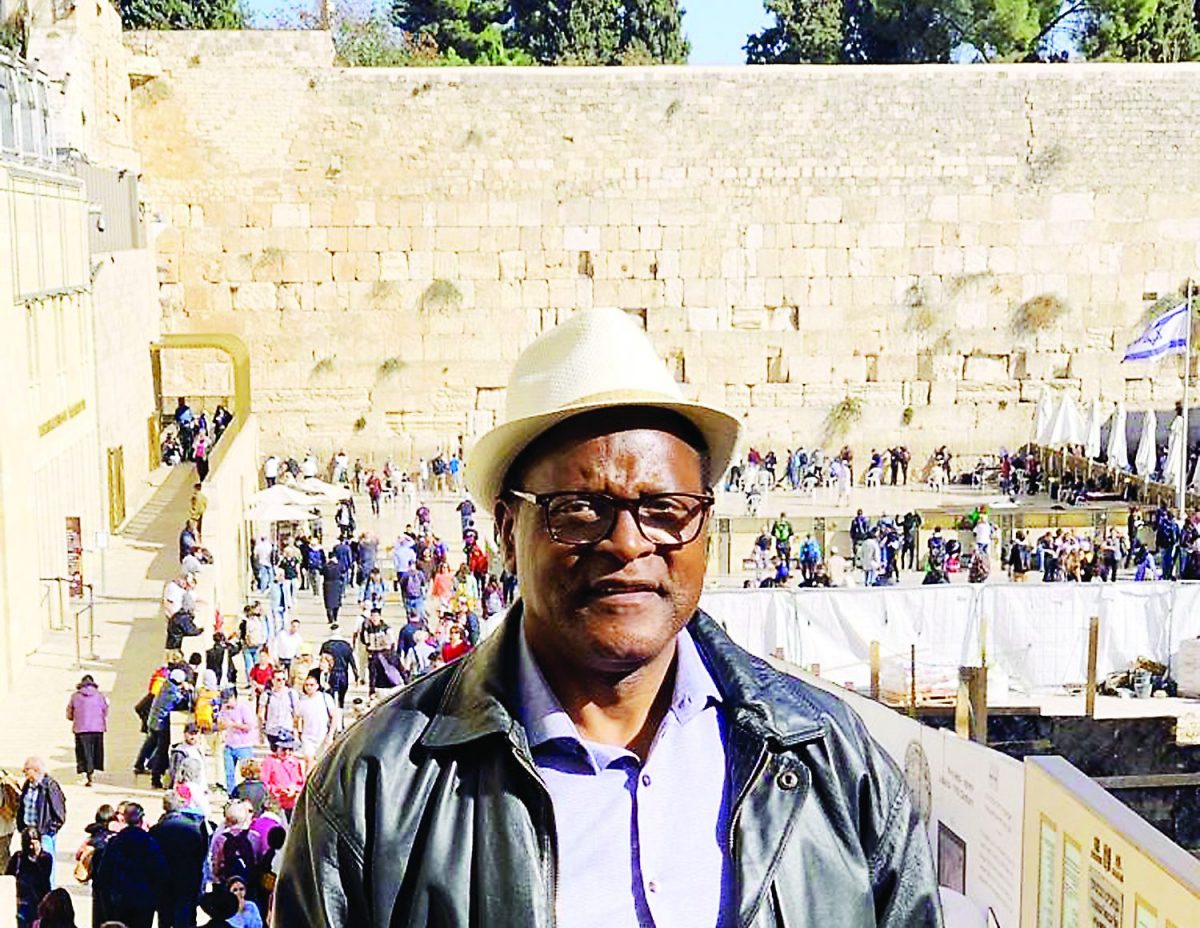
Featured Item

Malawi may be first African country to open embassy in Jerusalem
The president of Malawi has said that his country would open an embassy in Jerusalem, making it the first African country to take this step, either for a diplomatic office or an embassy.
Local analysts say this is a significant move and may have been influenced by the recent ‘Abraham Accords’ between Israel and the United Arab Emirates (UAE).
Malawian President Dr Lazarus Chakwera made the announcement on Saturday. “The reforms will also include a review of our diplomatic presence, including our resolve to have new diplomatic missions in Lagos, Nigeria, and Jerusalem, Israel. I will be sharing more details about this in the near future,” he said as he addressed his country’s parliament. He became president in June 2020. Although he spoke of a diplomatic mission, experts believe he is referring to an embassy.
Chakwera was in Israel in November 2019 and visited Jerusalem, including the Old City and the Western Wall. Malawi is a mostly Christian country with 19.2 million inhabitants. Israel’s non-resident ambassador to Malawi, Oded Joseph, is based in Nairobi, Kenya.
On Sunday, chief Palestinian peace negotiator Saeb Erekat announced that the Palestinian Authority would sever relations with any country that opens an embassy in Jerusalem. Within Malawi, a group of concerned citizens voiced their opposition to the plan, according to the Nyasa Times. “We object to having a Malawi embassy in Jerusalem. If Malawi is to open an embassy in Israel, let it be approved by parliament, and the mission should be in Tel Aviv,” said a member of the group, Mussa Ibrahim.
The head of the African Governance and Diplomacy Programme at the South African Institute of International Affairs, Steven Gruzd, says: “The announcement could be connected to the positive momentum generated by the UAE deal.
“Remember, Chakwera is a newly-elected president in a court-ordered rerun election in Malawi,” says Gruzd. “He is setting out his governing agenda. Although both countries have maintained relations since 1964, neither has had an embassy in the other country.”
Gruzd says the announcement is significant. “If a small and resource-strapped country like Malawi sees opening an embassy in Jerusalem as strategic for its interests, it may encourage others to move their embassies from Tel Aviv. It may also be a move to draw closer to the Trump administration. Once it is opening an embassy, it does not make sense to open in Tel Aviv and then have to move.”
He believes the move may encourage other countries to think about opening embassies in Jerusalem. “It may well have a demonstration effect. In the last five years, Prime Minister Netanyahu has put considerable effort into wooing African states and breaking the anti-Israel bloc in forums like the United Nations.
“These efforts seem to be paying off. The decision to move embassies is a highly politicised one, and not without risks. So far, only Guatemala has followed the United States lead on moving its embassy. Kosovo, Serbia, and Mali are said to be considering it. But sovereign states will make their own choices.”
Local political analyst Dr Ralph Mathekga says: “I think the opposition victory in Malawi provides an interesting turn of events, and anomaly in the region. I do not find it surprising the country is intending to open an embassy in Jerusalem – this seems to usher different politics in the country.
“Malawi is trending an interesting path that has not been seen in the region. A response to this on a regional level is difficult to anticipate, in the sense that most member countries on the continent seem to prioritise a bilateral relationship with Israel, while at the same time maintaining solidarity on the Palestine matter at the United Nations level or at a multilateral level,” he adds.
“The global community would watch in anticipation how Malawi might further break the ranks with other countries in the region or the continent on Israel matters or other matters. A lot is possible with Malawi, yet one cannot tell exactly how it will go.”
Sara Gon, head of strategic engagement at the Institute of Race Relations, also believes that the UAE deal has opened the space for Malawi, even though it is not a Muslim country.
“I suspect that it has wanted to support Israel wholeheartedly hence going for an embassy in Jerusalem, but the opprobrium that has faced the United States for the move has held it back,” she says. “The UAE deal makes it less risky. I think the fact that it is going to Jerusalem signals that Malawi wants a completely normal relationship with Israel – no-holds-barred. The intention is a good, solid relationship.”
Looking at how this may impact Israel’s relationships with other African countries and if they will also think about opening embassies in Jerusalem, she says: “I think they might, on the basis that in diplomacy there are usually other countries who want to make the same move but they need just one country to make the first move. I think this is particularly so with the majority of Christian countries who are tired of having to show support to the Palestinians and hatred against Israel just because they belong to the block of what were once ‘non-aligned states’.”
Regarding the global community’s response if Malawi went ahead with this, Gon says she “suspects it will be more muted than previously, except of course from the Palestinian Authority, Hamas, Iran, Hezbollah, etcetera”.
She continues: “The problem is they have nothing to offer Malawi, so they’ll be ignored. Obviously, Malawi is desperately poor and not particularly influential, and it needs what Israel can offer it, but it is a start.”
“The South African Zionist Federation warmly welcomes Malawi’s decision to establish an embassy in Jerusalem as the recognised capital of Israel,” says its national chairperson Rowan Polovin. “This news is part of a momentous tide of improved relations between Israel, the Middle East, and Africa. We encourage the South African government to participate in this momentum of improved relations that Israel is achieving across the world, and share in the benefits that it will bring.”










